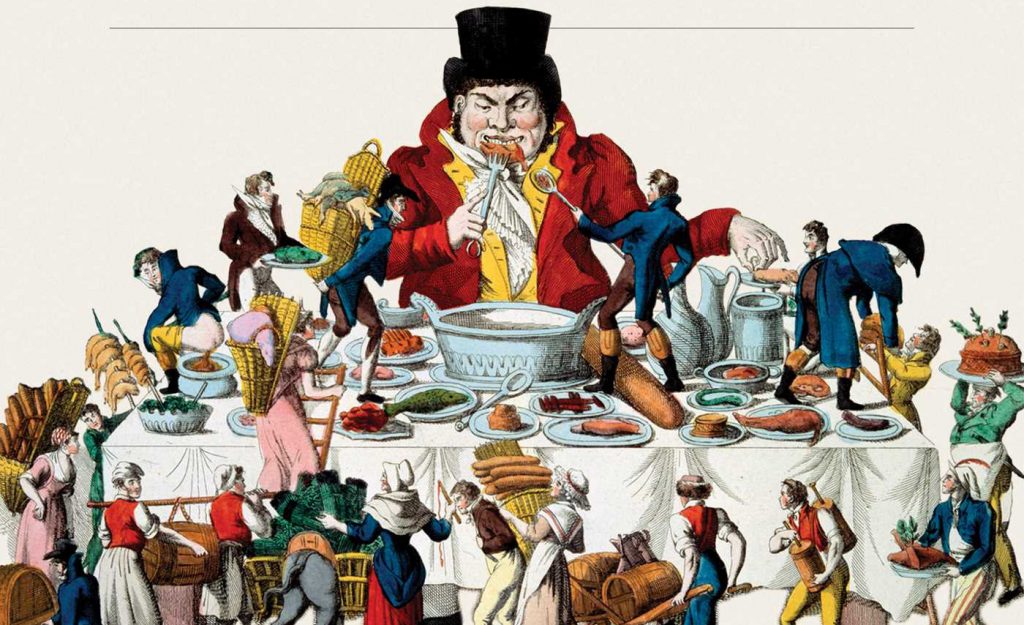Blog Post
If we live in a decadent society, how long will it last?
By Jonathon Van Maren
Ross Douthat, the conservative columnist who has thus far escaped the purges at the New York Times, is one of the most intelligent and talented writers of our cultural moment. Perhaps because he primarily spends his time writing for a largely hostile audience, there are few who can craft arguments with the deft and skill that Douthat regularly employs. He is always interesting, and his prose rarely misses. This makes his latest book The Decadent Society: How We Became the Victims of Our Own Success well-worth reading.
Douthat begins by examining the common understandings of decadence, and then cobbling together his own definition. Decadence, he posits, is collectively constituted of stagnation, sterility, sclerosis, and repetition. His least surprising argument is that the West has become increasingly soulless even as we have grown fat and wealthy, and parts of his analysis are almost identical to points made by Aleksandr Solzhenitsyn in his famous 1978 Harvard commencement address. Douthat’s version of decadence isn’t about intemperance, excess, and orgies—although all of that is part of it—but about measurable decline in the aforementioned categories.
To summarize very briefly, Douthat makes the case that our technological advances have stagnated. To prove this point, he utilizes much of Tyler Cowen’s research in The Great Stagnation, and employs a thought experiment to reveal the extent to which progress appears to have slowed: He points out that someone who traveled from 1940 to 1980 would be stunned by the revolutionary changes technology had wrought in society, whereas someone who traveled from 1980 to 2020 would observe an increasingly digital world, but the technology would in large part be familiar, albeit faster, more sophisticated, and vastly more powerful.
The chapter on sterility covers the death spiral demographics in most developing countries, the rise of voluntary abstinence (especially in places like Japan), and the perils of an aging population. Much of this will be familiar territory to most readers. As for sclerosis, Douthat posits that our institutions are paralyzed by conflict and stalemate—but that the checks and balances of America’s republic may mean that this could last for a very long time with neither side winning definitive victory. I am uniquely unqualified to judge his take on “repetition,” specifically his riff on Hollywood’s endless remakes, prequels, and sequels, as I haven’t seen a single one of the films he mentioned.
One of the things that makes The Decadent Society a somewhat unsatisfying read is that despite the fascinating analysis and brisk prose, Douthat hedges his bets on every thesis to the point that one ends up wondering what his point really is. He seems to be making the case that decadence exists without actually doing much to suggest what might be done to address it. Granted, offering prescriptions to address the sclerosis of this cultural moment is of course dangerous, as predictions always are, but most writers who attempt sweeping analyses of the state of culture—Mark Steyn in America Alone, Anthony Esolen in Out of the Ashes, Rod Dreher in The Benedict Option—at least give it a try. After a couple of hundred pages of Douthat’s analysis, one is tempted to shut the book, shrug, and think: So, what?
One of the most interesting (and least commented on) aspects of Douthat’s analysis is the extent to which his book contradicts nearly all of the previous “end of the world as we know it” tomes, including Mark Steyn’s America Alone. Our decadence, Douthat proposes, may be sustainable for decades, even centuries (but then, he hastens to add, it might not be. It is interesting to note that book was published in February of this year, before the pandemic, the riots, the statue-smashing, and this nightmare election.) Contradicting the War on Terror thesis that defines radical Islam as an existential threat, Douthat says that the Muslim world is too fractured and too paralyzed with internecine strife and civil wars to be able to mount any threat beyond the occasional lone wolf attack here and there. The barbarians may not be at the gates, and as for Muslim immigrant communities and their rates of childbirth, Douthat points out that the birthrate plunges and begins to merge with that of Westerners soon after immigrants arrive.
Even the polarization caused by social media, Douthat suggests, may actually just be a way of allowing the Right and the Left to duke it out in a safe space, a sort of video-game version of the 1930s Berlin street-fights. (Again, this is before the George Floyd riots and CHOP and the mass looting of American cities.) Vitriol, he points out, isn’t violence, and besides sporadic eruptions—campus riots to shut down conservative speakers, Antifa, etc.—this isn’t the 1930s except on Twitter, where people can get cancelled but not killed. Especially in the context of the political violence of the 1960s ( including the assassinations of JFK, RFK, Martin Luther King Jr. ), the thousands of bombings that once rocked the continental United States, and domestic terrorist groups from the Black Panthers to the Weathermen, the 2010s have been more sound and fury than actual storm.
The one point where Douthat’s analysis fails is in his analysis of pornography. He claims (as he did in a New York Times column back in 2018) that the social conservatives and feminists who warned of a rising rape culture triggered by sexually violent material turned out to be wrong, and that nonstop digital porn from adolescence onward appears to have domesticated men and given them a safer outlet for their uglier urges instead. This is an incredibly shallow analysis that a basic overview of the current research on porn by top scholars such as Dr. Mary Anne Laden and Dr. Gail Dines could have effectively rebutted. While it may be true that rape rates have gone down in terms of prosecutable offences, the reality is that porn has mainstreamed violence in the context of romantic relationships. It has normalized sexual violence as acceptable behavior. I won’t belabor the point (I wrote a long response to Douthat’s column at the time), but I’ll cite one recent stat as evidence: The Atlantic noted last year that nearly a quarter of American women reported feeling fear during intimacy due to the rise of porn-inspired choking.
There are a few real gems in The Decadent Society that I had to stop and re-read, such as when Douthat writes that the deadlock of our time “is between people who imagine that the resources of a fading past can revitalize Europe and America, and people who think that the only possible problem with our cosmopolitan society is that it isn’t cosmopolitan enough. Useless, because of the essential emptiness of both side’s posturing—an empty traditionalism championed by a heathen reality-television opportunist, set against a thin cosmopolitanism that’s really just the extremely Western ideology of liberal Protestantism plus ethnic food.” Frequent passages like that really do keep you reading.
I wondered as I neared the end of the book whether Ross Douthat was going to address the spiritual side of all of this: The fact that a decadent society fueled by moral corruption might not deserve to survive, for example, or that God’s patience will inevitably run out, or that divine judgement is a real thing that should make all of us tremble. Douthat is a Catholic, and thus probably believes much of that. But he is writing for an ecumenical audience, and thus left his religious add-on until the end, noting that he would be a “poor Christian” if he did not at least give a cursory nod towards the heavens.
It may be the end of the world, he writes (although, he inevitably adds, it might not be): “I’m just saying that if this were the age in which some major divine intervention happened, whether long prophesied or completely unforeseen, there would be, in hindsight, a case that we should have seen it coming. And it shouldn’t surprise anyone if decadence ends with people looking heavenward: toward God, toward the stars, or both.”
That seems to me to be the beginning of a new thesis rather than the wrap-up of his decadence theory, and I note that Ben Sixsmith over at Quillette echoed my sentiments quite well in his own review:
Frankly, as much as I enjoyed and agreed with most of The Decadent Society, I would have welcomed hotter, fiercer religiosity. One assumes that as one of the West’s more prominent Catholics Douthat thinks religious revival, however improbable, would be the answer to alienation and sterility, so he should have made that case. I might not have agreed, and others might have been outraged or disdainful, but it would have made the book more challenging and invigorating. After all, features of Western societies that non-religious people may find sad or dangerous, like reductive materialism, family breakdown and abortion, seem dramatically worse from a Catholic perspective, so philosophical neutrality is futile. Ironically, in what I suspect are his attempts not to be pigeonholed, Douthat has not quite spread his wings.
That is precisely it. One gets the sense that Douthat actually does harbor very specific beliefs about what could heal our culture and reverse our decadence (even if he doubts that they are likely to occur) but is keeping his cards close to the chest. This was apparent in Douthat’s conversation on decadence with Vox’s Ezra Klein, which was fascinating, frustrating, and from a practical perspective, unhelpful. As a conservative columnist for the New York Times, I understand that Douthat has to walk a tightrope. That said, I suspect he has many more insights to offer than he gives us in The Decadent Society. I wish he’d share them.








